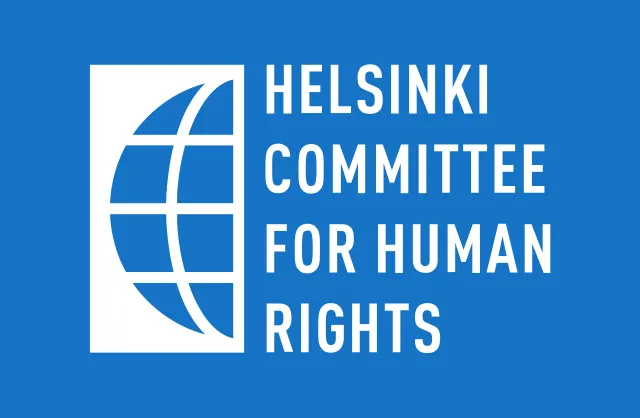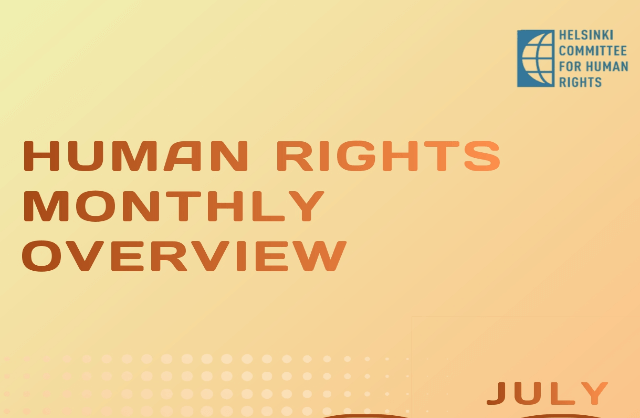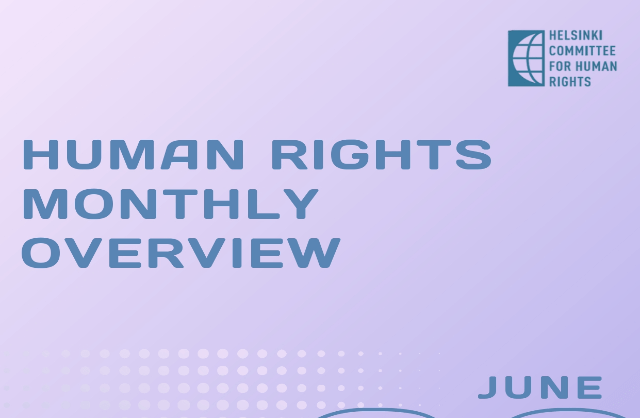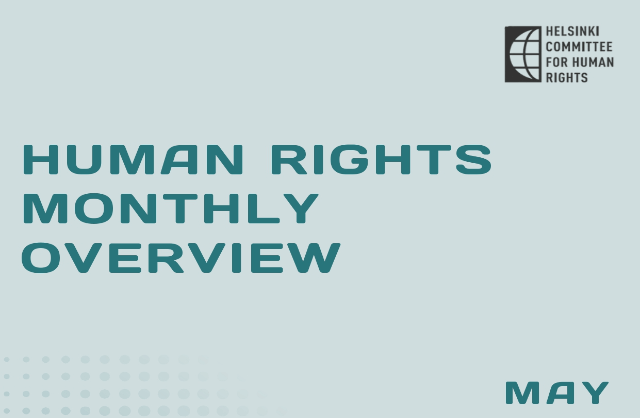The situation at the border crossings Gevgelija and Kumanovo for the period of December, 2017
January 17, 2018

Monthly report for December, 2017 on the situation at the border crossings Gevgelija and Kumanovo includes the following topics: Available facilities and conditions at the camp, Institutional treatment and irregular migration.
Gevgelija
Over the course of December 2017 the situation in the camp remained relatively unchanged compared to the previous month. The number of refugees was relatively low, and did not exceed 20 persons accommodated in the camp. The refugees transiting through the camp were mainly from Afghanistan, Iraq, Syria and Pakistan. What was typical for this month is that several Turkish citizens were placed in the camp, who had submitted asylum requests based on political persecution. At the end of the month, a total of 6 refugees were accommodated in the camp.
Available facilities and conditions
18 refugees were accommodated in the camp at the start of the month, whereby 8 of the Afghans staying there were immediately taken back to Greece. The people who stayed in the camp have origin from Iraq and Afghanistan.
At the very start of the month, the Deputy Minister of Interior, Mr. Agim Nuhiu, accompanied by a representative of the Czech Republic paid a visit to the camp and to “elevation 59”.
The Legis and La Strada organizations held creative workshops in the camp before the New Year holidays. Moreover, Legis regularly organizes creative workshops for the women in the camp.
The refugees accommodated in the camp can only go outside to take a walk in the city if accompanied by representatives of the competent institutions.
10 refugees originating from Iraq and Turkey who had been staying in the camp for about 2 weeks, submitted asylum requests. On the next day already, they were all transported to the Reception Center for asylum-seekers.
Institutional treatment
Over the course of this month, a total of 103 refugees were sent back to Greece by the Macedonian state services. Most of them go back voluntarily, as they are unable to continue on their journey.
On the night between the 01-02 December 2017, 8 refugees originating from Afghanistan, 8 women and 8 men were brought to the camp after being transported from the Bus Station in Gevgelija. They were on their way coming back from Serbia and they were immediately taken to Greek territory. On the next day (02.12.2017), 8 refugees originating from Afghanistan who were residing in the camp for a single day, were taken back to Greece at their own request, despite the doctor’s recommendation not to do so as one of the children in the group was down with a cold. On the same day, another group of 8 refugees originating from Afghanistan were brought to the camp, who had been living in Iran for several years. After staying in Serbia for a certain period of time, they decided to go back to Greece. After they were provided with food, water and warm clothes by the Red Cross, they were sent back to Greece. On the next day, 10 people originating from Afghanistan (5 women and 5 men) were brought to the camp and immediately deported to Greek territory. According to the information we got, they were also coming back from Serbia. On the same day, three men, Kurds, originating from Iraq, were brought to the camp. They crossed the Greek-Macedonian border for the first time, through the wire-fence, with the help of smugglers who were later caught by the police. After they were provided with humanitarian air and registered by the police, they were transported to Greece.
On the same day, a group of 14 refugees were brought, including men, women and one child, originating from Iraq and Syria. The group was found in a cargo truck during routine control on the Macedonian-Greek border. According to their statements, they had paid the smugglers from 2 to 3 thousand EUR to transport them to Italy but were cheated on about the route that they were supposed to take. They were given food, water and warm clothes by the Red Cross. After they were registered by the police, they were all transported to Greek territory. With this, during the first three days of the month only, a total of 51 refugees were transported to Greek territory, most of whom had come back from Serbia and had been transported to Greece at their own request.
On 4 December, 2017, 10 refugees originating from Pakistan and Turkey were brought to the camp, caught by the police in the vicinity of the Border Crossing Bogorodica. According to the testimonies of the Turkish citizens, they had fled Turkey due to political persecution. There was also one child among them. They were accommodated in the camp. Later on in the day, three more refugees originating from Algeria were brought to the camp, who were transported to Greek territory after the registration procedure, along with the Pakistanis from the previous group.
On 5th December, 12 refugees originating from Afghanistan and one from Syria were brought to the camp. Later on in the day, they were all transported to Greek territory.
On 10.12.2017 five persons originating from Pakistan were brought to the camp. Some of they did not manage to cross the Macedonian-Serbian border, while some of them had been sent back by the Serbian police. They all wanted to be taken back to Greece. After being given humanitarian aid and after they were registered by the police, they were all sent to Greece, together with one person originating from Afghanistan, who had been accommodated in the camp for two days.
On 15.12.2017, three persons originating from Turkey, caught by the police in the vicinity of the village of Bogorodica, Gevgelija, were brought to the camp. According to their statements, they had their money stolen. While the police was investigating the case they were accommodated in a container, and a few days later they were transported to Greece. Furthermore, on the 18th, 3 refugees originating from Pakistan and one from India, who had been caught by the police in Kumanovo, were brought to the camp. After an unsuccessful attempt to cross the Macedonian-Serbian border, they voluntarily went back to Gevgelija (Greece). After they were provided with humanitarian aid and got registered by the police, they were immediately transported to Greek territory. Consequently, the number of refugees accommodated in the camp went down to 4.
On 23.12.2017, the police reported that two refugees originating from Syria and four refugees originating from Pakistan were kept in the Police Precinct in Gevgelija, who had been traveling from Kumanovo to Gevgelija by bus. They had allegedly been staying in Serbia for a few months, but the reasons why they returned remained unknown.
On the night of 27.12.2017, a group of 9 refugees were brought to the camp, 8 of whom originating from Afghanistan and one originating from Palestine. After they were registered by the police, they were all immediately deported to Greece. On 28.12.2017, 5 refugees originating from Afghanistan and who had previously been questioned in the Police Precinct in Gevgelija, were brought to the camp. After they were registered, they were immediately transported to Greece.
On 31.12.2017, four refugees originating from Afghanistan, all male, who had previously been staying in a camp in Athens for a few months, were brought to the camp. They were caught by the police in the vicinity of the village of Smokvica, as they were travelling on foot in the vicinity of the railroad in order to get to Skopje. Three of them possessed Greek documents, which showed that they had submitted asylum requests in Greece. After they were registered and interviewed by the police, they were sent back to Greece. Later on during the day, three more refugees were brought to the camp, including a man and his pregnant wife from Syria and another man from Iraq. They stayed in the camp thus increasing the number of refugees accommodated in the camp to 6.
Kumanovo
The situation in the camp in December 2017 remained relatively unchanged. The frequency of movement of refugees continues to be dynamic, although the number of refugees accommodated in the camp for a certain period of time did not exceed the number of 18. This month was marked by two incidents – the one caused in the camp by a refugee in an affected, aggressive state who hurt himself, and others, as well as the group of refugees who were brought to the camp after they had survived a traffic accident.
Available facilities and conditions
At the start of the month 8 refugees were accommodated in the camp, 6 of whom were registered and 2 unregistered. Their countries of origin are Libya, Pakistan, Afghanistan, Syria although sporadically there were also people from Morocco. Most of them are males.
New refugees with different countries of origin kept arriving on daily basis. Most of them were coming back from Serbia.
Medical aid and treatment were available to the refugees on site, while those who needed more detailed check-ups were sent to the hospital in Kumanovo.
Coordinating meetings were held in the camp between the institutions and organizations in order to map the situation on field and assess the needs of the refugees accommodated there.
Legis organized another action during which it gave the refugees clothes and shoes.
Institutional treatment
On 10.12.2017 a larger group of 12 refugees who were caught by the police in the villages in the vicinity were brought to the camp with the aid of the Red Cross. Among them there was a five-member family originating from Syria, i.e. two brothers, one of whom had his family along (a wife, two underage children – a 3-year-old and a 9-month old baby). The family had returned from Germany voluntarily, in order to go back to Syria via Turkey. The family asked to be transported to Greece and waited for a few days before their transport was organized. Finally, on 19.12.2017, the family was taken back to Greece. The rest of the refugees from the group were sent back by the Serbian police. They intended to stay in the camp for a few days to get some rest, and then try to cross the border again.
On 12.12.2017, 7 refugees left the camp, 6 of whom were Pakistanis, and one was from Iraq. Further on, in the afternoon hours, a new group of 7 refugees arrived in the camp, with five of them originating from Afghanistan and two from Pakistan. They were immediately admitted and accommodated in the camp. They had been deported by the Serbian Police after they had allegedly participated in a physical altercation in a reception camp in Serbia.
Two people originating from Libya expressed interest to seek asylum whereby they were fully explained the procedure. On 14.12.2017, they were transported to the Reception Center for Asylum Seekers in Vizbegovo where the Department of Asylum will conduct interviews. After their example, another person staying the camp, from Morocco, also expressed intent to seek asylum.
On 14.12.2017, an incident occurred in the camp when one of the refugees who was intoxicated started to behave aggressively. The person’s country of origin is Afghanistan, and he had arrived in the camp two days ago, with medical documentation from Serbia. After being out of the camp for a few hours, the person returned intoxicated and after a banal conflict with another person, he started threatening the other people with stones. After the slow and nearly non-existent reaction of the police, the person started hurting himself. After he was taken down by the passers-by he was transported to the hospital in Kumanovo where his injuries were attended to, and he was kept there until he sobered up. The Camp Manager also witnessed the incident and reported it to the competent institutions asking for an increase in the police security services in future.
The Helsinki Committee for Human Rights harshly condemns the police’s failure to take action during the incident. The presence of police officers in the camp must be increased in line with the needs on the field, and the officers present there must exercise their competences in accordance with the law in order to protect the safety of all the people in the reception centre.
On 22.12.2017, 3 refugees (males) originating from Libya, arrived in the camp and were first held up at the main gate leading to the camp. After a brief talk with the police they did not enter the camp, but were provided with food, clothes and means of hygiene. After the refugees moved away from the camp, according to the statements of the police, they said that they had wanted to continue on their way to Greece alone, and police allowed them to do so.
On 23.12.2017, 5 refugees originating from Pakistan who had had an accident the previous day were brought to the camp. They were all injured (bone fractures) and had previously been taken and kept for treatment in the Emergency Center – Kumanovo. In the following days they had their checked-ups in the camp and they got the adequate therapy by the teams of the Red Cross and on daily basis.
Irregular migration
In the course of this month, in its newsletter, the Ministry of Interior registered 3 criminal and legal events related to smuggling and refugees. In the first event, on 03.12.2017, a mixed police patrol noticed a motor vehicle in the vicinity of the village of Miletkovo, which instead of slowing down after being signaled by the police, increased and tried to flee. After the vehicle was stopped and the driver was taken into custody, 10 refugees originating from Pakistan and Afghanistan were found in the vehicle, along with two people whose country of origin was Shri Lanka. As the Ministry informed, at the order of the public prosecutor, two of those people were taken to the Reception Center in Skopje, while the rest of them were sent to the Reception Center in Gevgelija. The next registered case took place on the following day when 14 refugees, all of them originating from Syria, were found in a cargo vehicle at the Border Crossing Bogorodica.
The last registered case was the accident which took place on 22.12.2017, in the vicinity of the village of Nikushtak, Kumanovo region, when a vehicle transported 8 Pakistani nationals went off the road. Due to the sustained injuries, all of the migrants were transported to the Kumanovo Hospital, and then to the camp.


